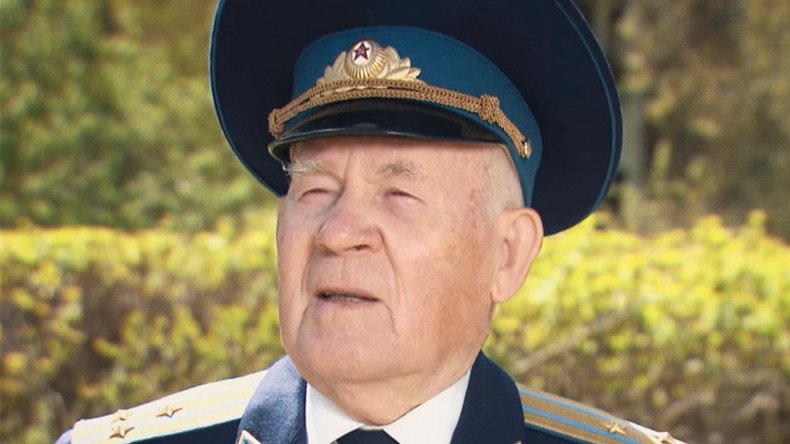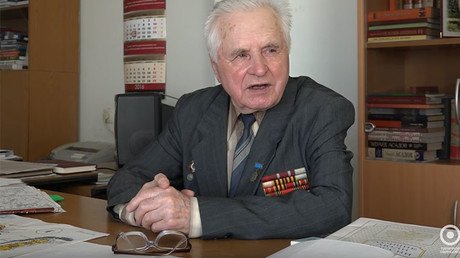'We didn’t know what it meant to smile,’ child of WWII recalls

Among the heart-wrenching stories of the Second World War the accounts of children who grew up amidst the hardships and grief of wartime are especially touching. Aleksandr Ovcharov was only six years old when his father was drafted in 1942.
Aleksandr, a 81-year-old retired colonel, was one of eight children in the Ovcharov family. The first memory he has is of the day his father Aleksey left for the front at the end of July 1942, as the war was escalating on Soviet territory.
Just before the New Year, the family received a death notice. Aleksandr remembers how his friends Volodya and Viktor stood in the doorway, hesitating to handle the tragic paper. Since his mother was illiterate, older brother Boris read first and said: “That’s it, Mom, our Dad is gone.”
However, in February 1943 his father returned home. Badly wounded, having lost fingers and suffering a bullet wound while fighting in the Battle of Stalingrad, Aleksey Ovcharov was written off as dead. The night his father came back, Aleksandr recollects, the children were sitting on the ‘pechka’ (Russian stove), and he fell off and had to have his head bandaged. “We’ve both been to the frontline, son,” his father told him.
“We, children of that time, didn’t know what it was to smile. Every now and then someone received a death notice,” Aleksandr says.
Aleksandr achingly talks of the aftermath of the war, recalling those badly wounded and the nearly 200 people who never made it back to their hamlet.
He describes the hunger and poverty they faced: “We didn’t have money at that time. Some would give us potatoes, some – eggs, milk.” But he also remembers the awe the children had when listening to the soldiers’ stories, and the immense joy that both adults and children felt when the news broke of the much-anticipated end to the conflict.













